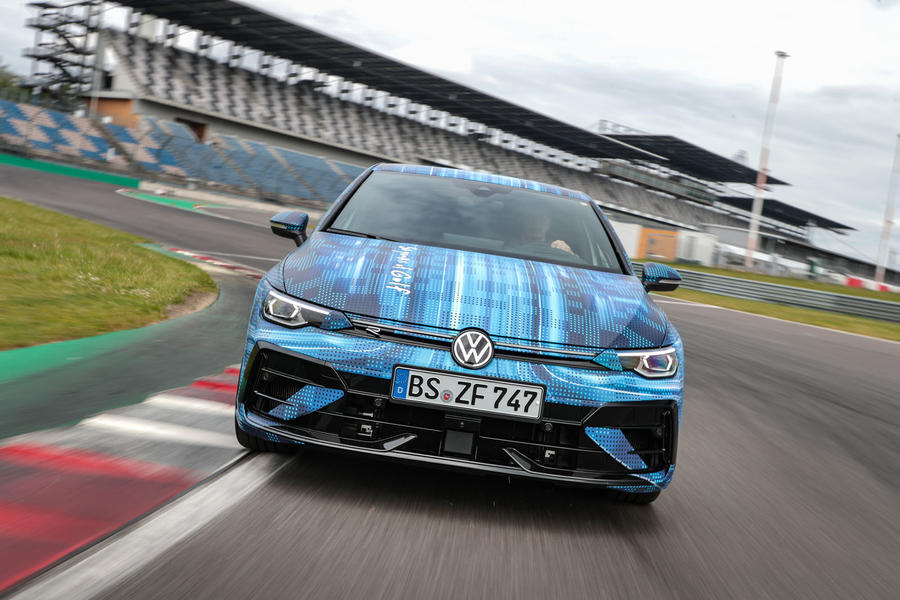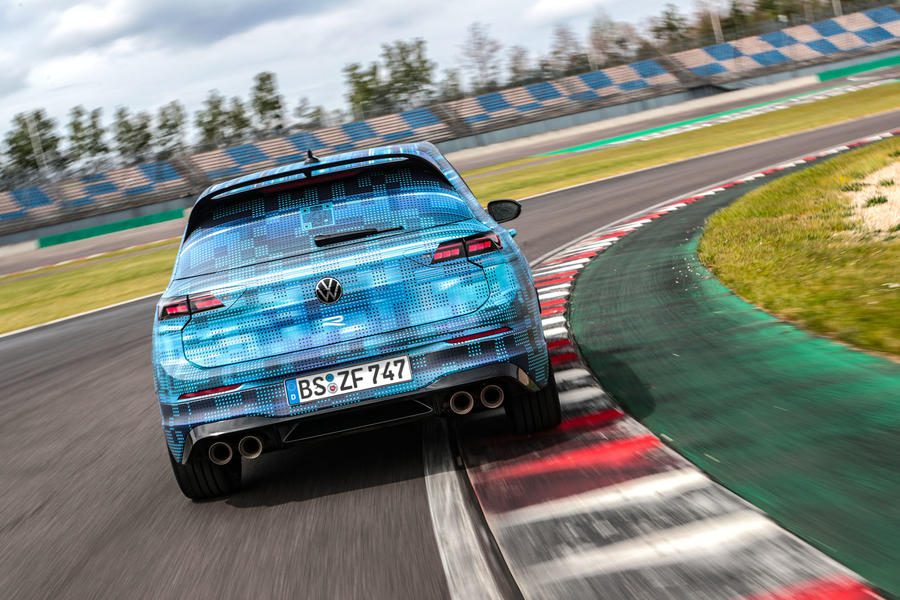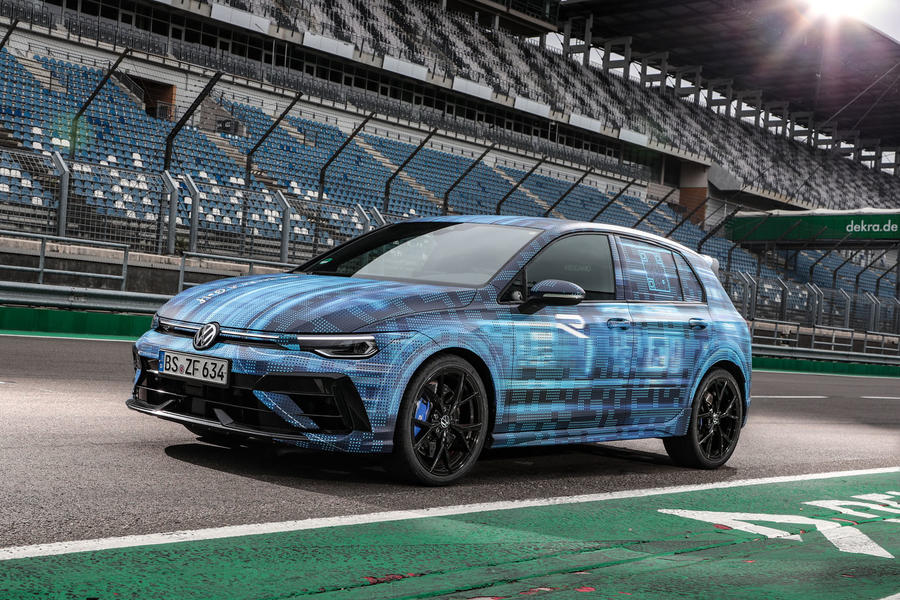Golf’s usability-focused facelift gives go-faster division a chance to enhance its high-velocity hyper hatch
Engineers at Volkswagen’s R division must be tired of wrestling with the law of diminishing returns.
So composed and complete was their high-performance reworking of the seventh-generation Golf that they have struggled to make any big gains since, either through that model’s facelift or its subsequent transformation into the current eighth-generation Golf.
Now there’s another mid-life refresh for the Wolfsburg wonder and once again Volkswagen has elected to not really mess with a winning formula. There’s a little more power (at 328bhp, this is the most powerful series production Golf yet) and some tweaks to the driving modes. Plus there’s the option of a new Performance Pack (price as yet undecided) that adds some lightweight forged alloy wheels, an angrier Akrapovic titanium exhaust and a raising of the speed limiter to 167mph.
There are also some subtle visual tweaks, but as you can see, these were hidden under my pre-production test car’s disguise. It isn’t hard to get a fair idea of what has been updated, mind.
For starters, most of the major changes, such as the slimmer headlights, are shared with the standard Mk8.5 Golf, which was unveiled in April.
Look closer and you will spot the R’s reprofiled front bumper, complete with new ‘air blades’ that Volkswagen tacitly admits are as much about aesthetics as aerodynamics, and at the rear 3D-effect tail-lights that offer the option of three different strobing and flashing ‘welcome signatures’ when you lock and unlock the car.

Our test car was also fitted with the new 19in Warmenau forged alloy wheels (named after R division’s hometown), which weigh 8kg a corner, saving the same amount overall in unsprung mass compared with the similarly large cast alloy option. Thinly spoked and slim-rimmed, they are also claimed to provide increased airflow to the brakes for enhanced cooling.
It also featured that lightweight exhaust that is promised to give the R greater voice, especially if you press the start button for at least 1.5 seconds without touching the brake pedal to initiate a theatrical flare of revs to 2500rpm once the engine churns into life. One for those neighbours you can’t abide, perhaps?
Even so, when fired up in this manner, the Golf R still lacks the instant aural drama of the Audi RS3 or even the (admittedly much pricier) Mercedes-AMG A45 S. There’s a greater baritone than before, but the Golf R remains a fast hatch that would rather let others play the peacocking game.
That said, the sound actuator that pumps synthetic engine noise into the cabin has been given a more gravelly delivery.
Thankfully, it can be switched off through the enhanced drive mode set-up, which offers greater customisation and even a new Eco mode that softens the throttle response and provokes earlier shifts from the seven-speed dual-clutch automatic gearbox.

Despite the 12bhp uplift in power (torque is unchanged, at 310lb ft), Volkswagen’s venerable EA888 turbocharged 2.0-litre four feels much as it did before. Almost lag-free, it doles out satisfyingly elastic performance as it pulls hard and smoothly from idle all the way through to the 6800rpm cut-out.
Few cars deliver such easily accessible performance, and if anything the R responds a little too alertly to initial throttle applications, meaning a sensitive right foot is needed to avoid neck-snapping getaways even when you are trying to go gently.
Once you are moving, the powertrain remains a highlight, the eager engine matched to a DSG ’box that shuffles cogs quickly and decisively. Better still, in the raciest drive modes, the transmission now holds gears when in manual mode, refusing to shift up whenyou hit the limiter.
This sense of alertness extends to the chassis, which even on my limited test drive appeared to offer the familiar mix of entertainment and control. That’s no real surprise, because it’s carried over largely unchanged from the old car, although adaptive dampers are now standard (they still don’t offer quite the cushioned ride you would expect in their softest setting, however).
The quick steering is precise and naturally weighted, while the strong front-end grip allows you to place the Golf R with pinpoint accuracy. Regardless of speed, it clings on with Gorilla Glue tenacity, those trick dampers offering cast-iron control that breeds supreme confidence.

Yet this isn’t some humourless point-to-point shuttle: there is the opportunity to get expressive if you want. And with the car in its revised R mode, the four-wheel drive system serves up a smidge more rear-drive throttle adjustability. It certainly feels lighter on its feet than the Mercedes-AMG A35, even if it can’t match the front-wheel-drive Honda Civic Type R for gritty driver involvement.
With the automotive industry at a crossroads on the journey to decarbonisation, it’s no surprise that Volkswagen has invested only the bare minimum in updates for the Golf R, but so well rounded was the old car that there wasn’t too much that really needed doing.We will have to wait until we can sample a production-ready version to deliver our full verdict, but our early taster suggests this high-velocity Volkswagen’s appeal remains undiminished.
Source: Autocar
